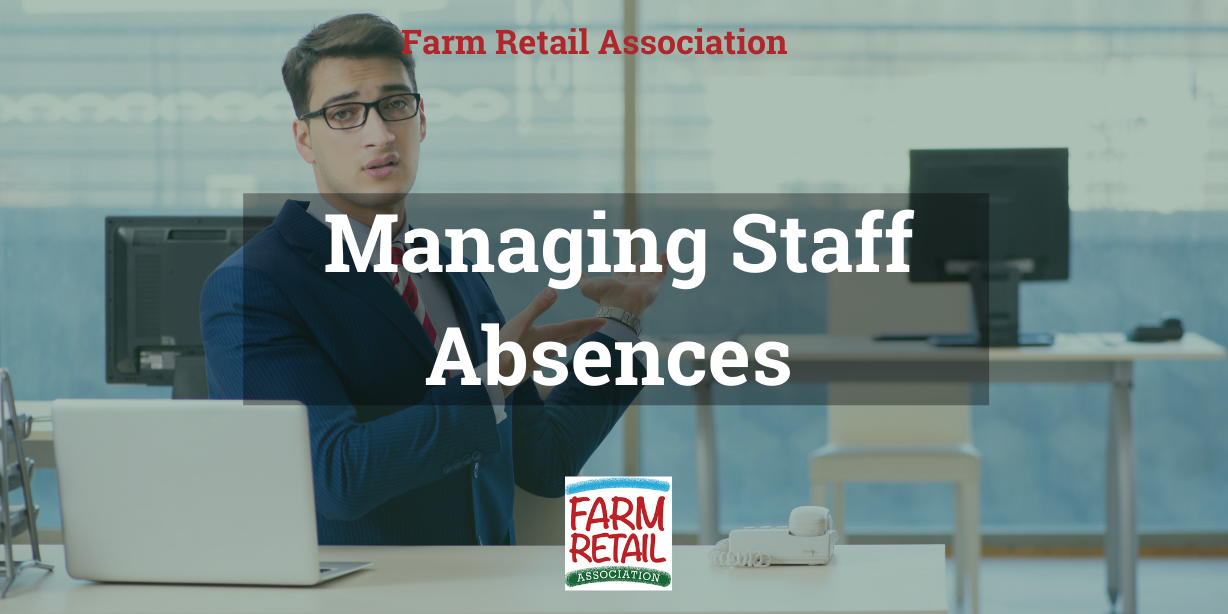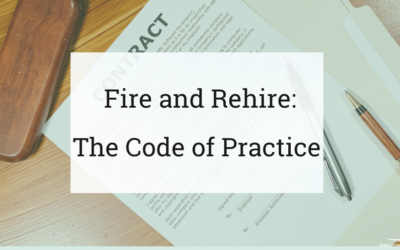Managing Staff Absences in Retail
This blog focuses on an employer’s guide to managing staff absences in retail. There is no noise worse than sniffing and nose blowing, but, in the midst of cold and flu season, both are inevitable.
Of course, cold and flu season can cause significant problems for businesses, far more significant than incessant nose blowing. High levels of absence must, of course, be dealt with, however, when we throw Coronavirus into the mix things can get a lot more complicated.
Cold or Coronavirus – what do you have to do?
Where an employee has contracted Coronavirus they are (currently) required to self-isolate. As this is a legal obligation we cannot hold an employee responsible for their absence in the same way we would for other absences.
Of course, we are all well aware of the impacts of Coronavirus and what employers need to do when staff test positive, but as an overview, employees who test positive are expected to isolate, employees who are unvaccinated and have a household member with Coronavirus are also expected to isolate. The regulations on isolation are changing regularly so get in touch with our lawyers for the most recent guidance.

“What do I do if my staff have regular absences with colds and flu?”
Regular absences can have a massive negative impact on your business, especially in retail. Although some people are naturally more susceptible to colds their absence from work, in spite of the nose blowing, can be far more detrimental to a business.
Some business owners like to discipline employees when their levels of absence get too high. Although we agree with the desire to do something to mitigate absences employers must ensure that they take the right course of action.
Disciplinary action should be reserved for conduct matters, in other words where the employee has done something wrong, simply being absent from work is not a matter of conduct. Employers should instead ensure that they have an adequate and well-managed absence management procedure in place.

Managing staff absences in retail through an absence management policy
Employment Law Solutions have designed an absence management policy that effectively reduces absences, by ensuring that absenteeism has a consequence. The procedure is similar to the disciplinary policy but is significantly different as it does not rely upon misconduct. The absence management process is a formal process that takes an employee with a high level of absence through a series of meetings and cautions which could ultimately result in dismissal. This procedure is ideal for those instances of absences that are considered short-term.
Successful and effective implementation of this procedure reduced one client’s annual agency worker bill from approximately £1,000,000 per annum to £250,000 as repeat offenders were either moved out of the business and those who took advantage of the system realised there were consequences to ‘pulling a sicky’.
The successful and effective implementation of this policy also reduced the risks in relation to litigation from disciplining staff who had not committed any form of misconduct.
Want access to our absence management procedure? Get in touch
“Why should I hold a return to work meeting?”
Return to work meetings serve a multitude of purposes. Firstly, they allow employers and managers to ensure that their staff are fit and well for work after a period of absence, this is a basic step in complying with the duty of care to employees.
Secondly, return to work meetings allows for a good understanding of the reason for the absence to be gained. By exploring the reason for the absence employers can:
- establish if there is an underlying illness which could amount to a disability;
- establish if there are extenuating circumstances which an employee may need support through;
- determine whether the reason for the absence is one permitted by law, for example the right to emergency time off to care for a dependant; or
- find out if the employee did in fact ‘pull a sicky.’
Thirdly, the return to work meeting is the first stage of accountability for absenteeism. Whether there is a genuine reason for the absence or not, everyone needs to be aware that being absent from work has serious knock-on effects. We have seen that proper use of a return to work meetings reduces absences due to minor ailments, staff in essence think twice before taking the time off because of a cold or other minor illness.
Finally, the meeting notes form part of the evidence trail which will need to be relied upon in the absence management meeting.
“Without a sick note are my staff entitled to SSP?”
Maybe! It is a common misconception that sick notes (now known as fit notes) are necessary before statutory sick pay (SSP) is due.
With the exception of Coronavirus (at the time of writing) employees must have three days absent prior to becoming entitled to receive SSP. Those three days, commonly called the waiting or counting days, do not need to be consecutive, they must be linked by a period of 8 weeks or less in order to be classified as linked. Providing the employees have had three days absent in an 8 week period, and they earn the lower-earning limit, they are entitled to received SSP.
“Can I send my staff home if they have a cold?”
Employers can send staff home if they are unwell. If the incessant sniffing gets too much or you fear the cold will affect the rest of the team you can send your staff home, but this does come with some consequences.
If an employee is ready and willing to work, but they are prevented from doing so, they are entitled to full pay. Therefore, if an employer sends an employee home due to a cold, but they can in theory still work and are willing to do so, they will be entitled to full pay.
If the employee is unable to work, for example where an employee who has to replenish shelves but has broken their leg, they may not be able to do the job and are therefore not ready, they will only be entitled to SSP.
Employment Law Solutions can help
We understand that managing staff absences in retail can be tough and Employment Law Solutions want to help. Whether it’s assistance with an absence management policy or as simple as want to say to your employee when they call in sick.
As part of the Farm Retail Association partnership with Employment Law Solutions, FRA members have access to a free hour per month with Employment Law Solutions. Get in touch to claim your free hour.





